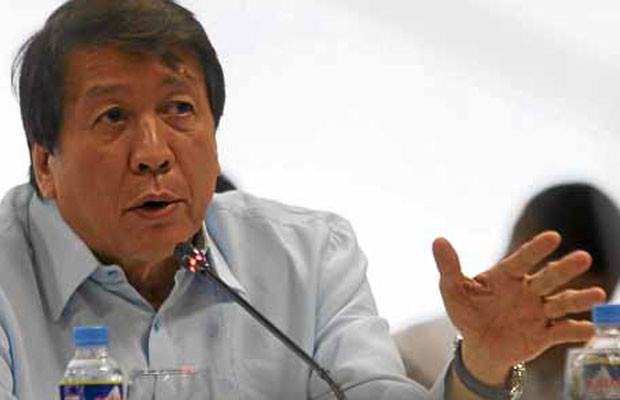Fariñas: No to 2 chambers’ separate voting in special session

House Majority Leader Rodolfo Fariñas. INQUIRER FILE PHOTO
House Majority Leader Rodolfo Fariñas has thumbed down proposals for separate voting by the Senate and the House of Representatives during Saturday’s joint session of Congress on the proposed five-month extension of martial law in Mindanao, saying it’s unconstitutional.
Responding to concerns by some senators that their small number would render the Senate virtually “irrelevant,” the House leader said separate voting by the two chambers would not be the solution.
“If the two Houses of Congress vote separately in revoking or extending the proclamation of martial law, I am almost certain that the Supreme Court will rule such unconstitutional,” he told reporters in a group message.
“Indeed, if each House votes separately and decides differently, we will have a deadlock and won’t be able to revoke or extend martial law,” said Fariñas, the chair of the House rules committee, which would draw up the guidelines for the joint session in collaboration with its Senate counterpart.
He said the rules committees of both Houses would discuss how to go about it. “We will discuss it with them privately so as not to ruffle anyone’s feathers,” he said.
Article continues after this advertisementSenators Panfilo Lacson and Richard Gordon earlier proposed that the two Houses vote separately, noting that only 22 senators out of 24 seats would be present during the session, with Alan Peter Cayetano having vacated his seat to be the Foreign Secretary and Sen. Leila de Lima in detention.
Article continues after this advertisementThus, the senators said, the Senate would be vastly outnumbered by the 293-strong House.
READ: Congress to convene on martial law extension Saturday
But Fariñas said the 1987 Constitution was “very clear” and left “no room for interpretation” in directly mandating joint voting by Congress either to revoke any proclamation of martial law or to extend it.
It states that: “The Congress, voting jointly, by a vote of at least a majority of all its Members in regular or special session, may revoke such proclamation or suspension, which revocation shall not be set aside by the President.”
“Upon the initiative of the President, the Congress may, in the same manner, extend such proclamation or suspension for a period to be determined by the Congress, if the invasion or rebellion shall persist and public safety requires it,” it adds.
President Rodrigo Duterte called a special joint session of Congress to extend until the end of 2017 his Proclamation 216 placing Mindanao under martial law and suspending the privilege of the writ of habeas corpus in the troubled region.
In a letter to the two Houses on Wednesday, he raised fears that the crisis in Marawi City would continue to escalate, as foreign and local sympathizers continued to fuel the rebellion by the Islamic State-inspired Maute group and Abu Sayyaf.
LOOK: Duterte’s report to Congress requesting martial law extension
Fariñas could not say how long the joint session would last on Saturday, the same day Mr. Duterte’s 60-day proclamation would expire.
“Hard to give time estimates as this will be a joint session with two sets of presiding officers, majority and minority leaders, and memberships, who will have the floor alternately,” he said./rga